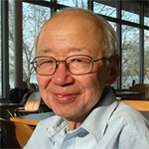
All lectures are presented fully online via Zoom every Friday at 3:30 PM. The link to join the meeting is https://go.wisc.edu/l880yf except when otherwise indicated. Brown bag sessions start at noon on the days there are speakers. Alumni, friends and the public are always invited to attend.
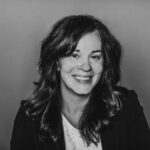
February 3rd – Policing the Climate Crisis: Carceral Ecologies and Climate Futures in Gullah/Geechee Nation and Beyond
Kate Derickson, University of Minnesota
Thinking from a decade-long collaboration in Gullah/Geechee Nation in South Carolina, US, this talk brings together literatures on the political economy of urban governance, climate change and the racial state. Hollowed out by neoliberal restructuring, local governments in the US are increasingly turning to racialized policing to raise revenues, charging officers with issuing numerous tickets for “quality of life” violations and minor driving infractions. Officers overwhelming target working class people of color for these kinds of tickets, entangling them in the carceral state, sometimes with deadly consequences. My research with Gullah/Geechee people suggest that these dynamics are also playing out in the realm of natural resource law enforcement and may provide a window into the future of racialized climate governance. I consider the opportunities and challenges this presents for making knowledges for climate futures otherwise.
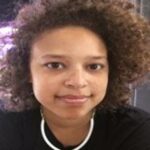
February 22nd – Rescaling Public Finance Towards Racial Equity? Tax Increment Financing and the Politics of Redistribution in Milwaukee, Wisconsin
Hilary Wilson, CUNY
Whether considered an effective “value capture” measure or a vehicle of neoliberal austerity, tax increment financing (TIF) is now the most widely used tool for economic development in cities across the U.S. This talk will explore how a diversity of actors in Milwaukee, Wisconsin have attempted to mobilize TIF to address the city’s long history of racial exclusion in the real estate and labor markets. Hilary shows that despite TIF’s initial use to support the city’s pro-business, downtown development agenda, subsequent reforms due to pressure from community and labor groups have had limited success in redistributing TIF funding more equitably. Hilary argues that by enacting a re-spatialization of political economic relations and reinforcing capital’s ethical commitments to marginalized residents, these reforms give local actors a limited capacity to “ground” capital in the local economy, including in historically redlined communities.
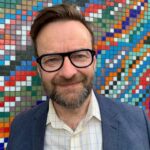
March 31st – On Routes.
Tim Cresswell, University of Edinburgh
While significant attention has been given to critical accounts of borders and bordering in recent decades, the same cannot be said of routes and routing. People and things do not move at random across an isotropic plain. This is the first lesson of mobility – people and things follow, and create, routes. This presentation argues for a critical account of routes and routing through a series of connections, digressions and short cuts that explore how routes create infrastructures of power as well as the use of self-made routes – desire lines – to trace out possible alternatives to the infrastructural present. Where you start, how you get there, what direction you take, and where you end up are all part of this equation. The analysis of routes and routing forms a key part of a wider politics of mobility separating citizens and vagabonds – key figures in the histories and geographies of mobility.
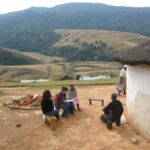
April 7th – Social Medicine from the South: Lessons for the Age of Global Health
Abigail Neely, Dartmouth College
There has been a recent uptick in interest in social medicine-the combination of clinical care and an attention to the social determinants of health-worldwide. In this talk, Abigail asks what we can learn about the possibilities and limitations of social medicine from the people who lived in the catchments of one of its most important origin sites, Pholela, KwaZulu-Natal, South Africa. By understanding social medicine from Pholela, Neely opens up important questions about what constitutes both medicine and social life in Pholela and beyond. The results is a story of multiple actors-people, microbes, political-economy, and ancestors, to name a few-working together to shape both community health and the scientific practices developed to address it. In telling his story of social medicine, Neely challenges global health practitioners to recognize the multiple realities their patients live in and to make space for healing beyond scientific social medicine.
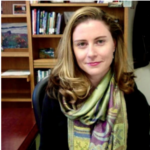
April 14th – Geopolitics of Sectarian conflict and peacebuilding efforts in divided Ireland: A frozen reconciliation?
Kara Dempsey, Appalachian State University
The relationship between the Republic of Ireland and the United Kingdom is often framed through competing claims to space, power struggles, and exclusionary ethnonationalism. To explore the means through which space becomes a fundamental element of conflict and peacebuilding, this paper focuses on contemporary Northern Ireland. Much of this region remains divided as it emerges from a prolonged struggle, including a period of marked violence known as the Troubles. This conflict resulted in the loss of thousands of lives and residential and social segregation. This paper examines segregated neighborhoods to understand how urban space perpetuates ethnic enclaving in what many describe as apartheid. It also investigates grassroots efforts to create “shared spaces” to forge inclusive civic the broader context of the island of Ireland to situate Brexit negotiations (e.g., Northern Ireland Protocol and Windsor Framework) and how space is utilized to foster efforts to negotiate perceptions of national identities and territorial belonging.
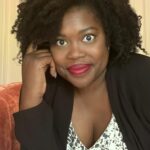
April 21st – A Discussion on Safety and Well Being in Field Research
Veronique Porter, Ampersand Workspace
In the spirit of the ongoing conversations around improving departmental climate and culture, please join us for a facilitated discussion around field research safety and security (physical, mental, emotional, and financial). Field research is exciting but can also come with challenges and uncertainties. Security also raises issues of equity and access, affecting all of us differently. During this session, we hope to identify resources that already exist in the department and at the university and discuss how faculty and graduate students can best support one another in feeling safe in our field research, with a focus on actionable next steps. To ensure everyone is able to participate, Veronique Porter of Ampersand Workspace will facilitate the discussion. Veronique is the Founder and Lead Educator at Ampersand Workspace, and teaches folks to recognize race and gender-based oppression and to use their power, privilege, and influence to disrupt it. She is a thoughtful facilitator and teacher-trainer utilizing her background in International Development, research in American studies & culture, and her years of experience as a Black American woman in the world.
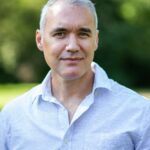
April 28th – What’s driving community opposition to renewable energy development?
Doug Bessette, Michigan State University
There’s a lot to love about renewable energy, large-scale wind and solar energy in particular. They generate inexpensive and emission-free electricity, reduce our reliance on fossil fuels, and contribute to community economic development. And yet opposition to these projects is rising across many communities in the US, slowing out energy transition and threatening to derail decarbonization goals. In this talk, Doug will discuss some of the lesser known and examined drivers of opposition, with a principal focus on community opposition to large-scale solar development in rural and agricultural communities. Doug will complicate pejorative NIMBY explanations of opposition and argue that many times, in many communities, opposition to aggressive solar development is warranted. Throughout my talk, Doug will discuss work by graduate and undergraduate students in my lab, as well as ongoing Department of Energy and National Science Foundation-funded projects focusing on community centered renewable energy development.